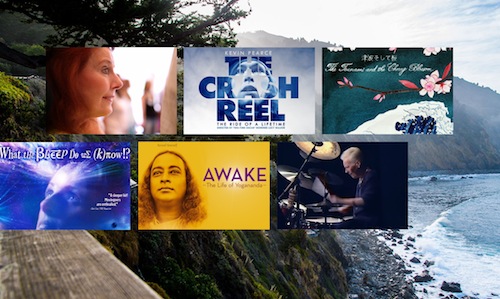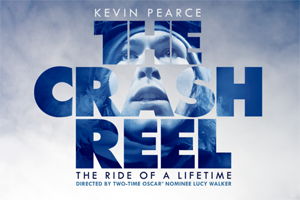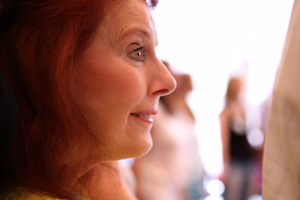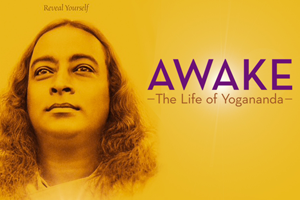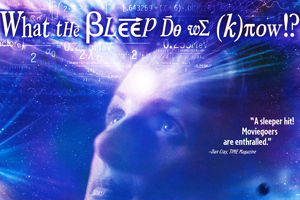 Esalen, a storied getaway perched above the thundering waves of the central California coast, was the setting for the second annual Esalen Inspirational Film Festival. While the resort itself is a powerful motivator for self-reflection and renewal, the festival played its part with a week of memorable images, skilled storytelling, and constant reminders that human beings are remarkably resilient. Woven together by Corinne Bourdeau and Mary Murphy of the film promotion company 360 Degree Communications, the event featured an eclectic mix of films and panels and plenty of spirited conversations with filmmakers and film aficionados.
Esalen, a storied getaway perched above the thundering waves of the central California coast, was the setting for the second annual Esalen Inspirational Film Festival. While the resort itself is a powerful motivator for self-reflection and renewal, the festival played its part with a week of memorable images, skilled storytelling, and constant reminders that human beings are remarkably resilient. Woven together by Corinne Bourdeau and Mary Murphy of the film promotion company 360 Degree Communications, the event featured an eclectic mix of films and panels and plenty of spirited conversations with filmmakers and film aficionados.
Seligman identified five basic components of well-being that Doran also considers the elements of a good movie: positive emotions, engagement, achievement, relationships, and meaning—living with a sense of purpose.
Seligman identified five basic components of well-being that Doran also considers the elements of a good movie: positive emotions, engagement, achievement, relationships, and meaning—living with a sense of purpose.
“What we are basically talking about here,” she concluded, “is human resilience”—a storytelling motif that leaves audiences with a satisfied glow. Think It’s a Wonderful Life and Rocky. And the festival delivered, presenting new films that demonstrate how the human spirit can overcome even the darkest moments of a person’s life. A few of my favorites:
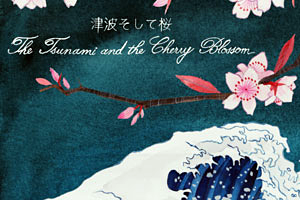 The Tsunami and the Cherry Blossom
The Tsunami and the Cherry Blossom
Lucy Walker led off with her poignant Oscar-nominated short. Opening with horrific images of the 2011 Fukushima tsunami that felt eerily surreal, the film then pivoted toward some of the people left to pick up the pieces. Their recovery has been buoyed by the healing power of the cherry blossom, a sacred image in Japanese lore that symbolizes beauty, endurance, and the preciousness of human life. “Every year the flowers blossom,” one survivor said. “They give us hope to keep going.”
Walker then screened her lauded full-length film. It follows the story of snowboarding superstar Kevin Pearce, who suffered a life-threatening accident weeks before the 2006 Winter Olympics that left him with a traumatic brain injury. Many threads are followed, including the effect on his family and friends (especially his brother David, who has Down Syndrome), the painstaking rehabilitation efforts of Pearce and his doctors, and the prevalence of such injuries across a spectrum of sports. Some of the most powerful scenes captured Kevin’s attempted return to snowboarding and his reluctant acceptance that his racing life was over. Despite the loss and setbacks, however, he finds new meaning as an emissary to others—and a recovery that brings wholeness back to himself and those he loves.
First-time filmmaker Coleman Gladis showed clips of this moving portrait of his mother, Mariah Gladis, a world-renowned psychotherapist who has defied the odds as a long-term survivor of ALS, commonly known as Lou Gehrig’s Disease. Her courage and perseverance, and the loving commitment of her caregiving husband, brought plenty of emotion to the surface as those of us in the audience marveled yet again at the power of the human spirit to meet any obstacle. And she continues to teach!
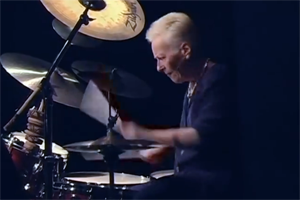 Keeper of the Beat: A Woman’s Journey into the Heart of Drumming
Keeper of the Beat: A Woman’s Journey into the Heart of Drumming
This joyous, toe-tapping story of acclaimed 68-year-old percussionist Barbara Borden was runner-up for the Audience Award for Best Documentary at the 2013 Mill Valley Film Festival. Borden and her drums traveled the world as ambassadors of healing and peace—she commissioned the making of “the heart drum”—and I was especially moved as she described her evolution from “master of the drum” to “lover of the drum,” a realization that took place while performing in war-torn Croatia.
I was mesmerized by the clips from Lisa Leeman and Paola di Florio’s soon-to-be-released movie about the life of Paramahansa Yogananda, the man who did so much to bring Eastern wisdom to the West. Equally riveting was the filmmakers’ account of their five-year journey to make the film and the transformation they went through as they struggled to understand the depth of his teachings. As Leeman observed about the reason transformational films are finding a wider audience: “We’re getting hungrier for meaning in a world that’s getting crazier all the time.”
Yes, the bedazzling breakout hit of 2004 that brought the mysticism of quantum physics and the power of belief to a worldwide audience was queued up once more, and we still marveled at its audaciousness. Part documentary, part narrative, part animated wonder, the film broke all the rules while giving us hope that we have only begun to reach our human potential. Betsy Chasse, co-creator of the film, was on hand to provide insights into the making of it. “Film,” she told us, “is the modern world’s version of the ancient art of storytelling, with often transformational intent. It can change our trajectory.”
Why does creativity matter? We need creativity to meet a world where the challenges exceed the solutions…The big game of creativity is to help us become intimate with what we do not know.
“Why does creativity matter?” he asked. “Everything we do is a creative act—our thoughts, our choices, our beliefs. We need creativity to meet a world where the challenges exceed the solutions. Unfortunately, we are wired in ways that are inhospitable to new instruction. The big game of creativity is to help us become intimate with what we do not know.”
Mark your calendars for next year’s event, scheduled for April 19-24, 2015!
Post Disclaimer
This content is for informational purposes only and does not constitute medical advice. Please consult a healthcare professional for any medical concerns.

